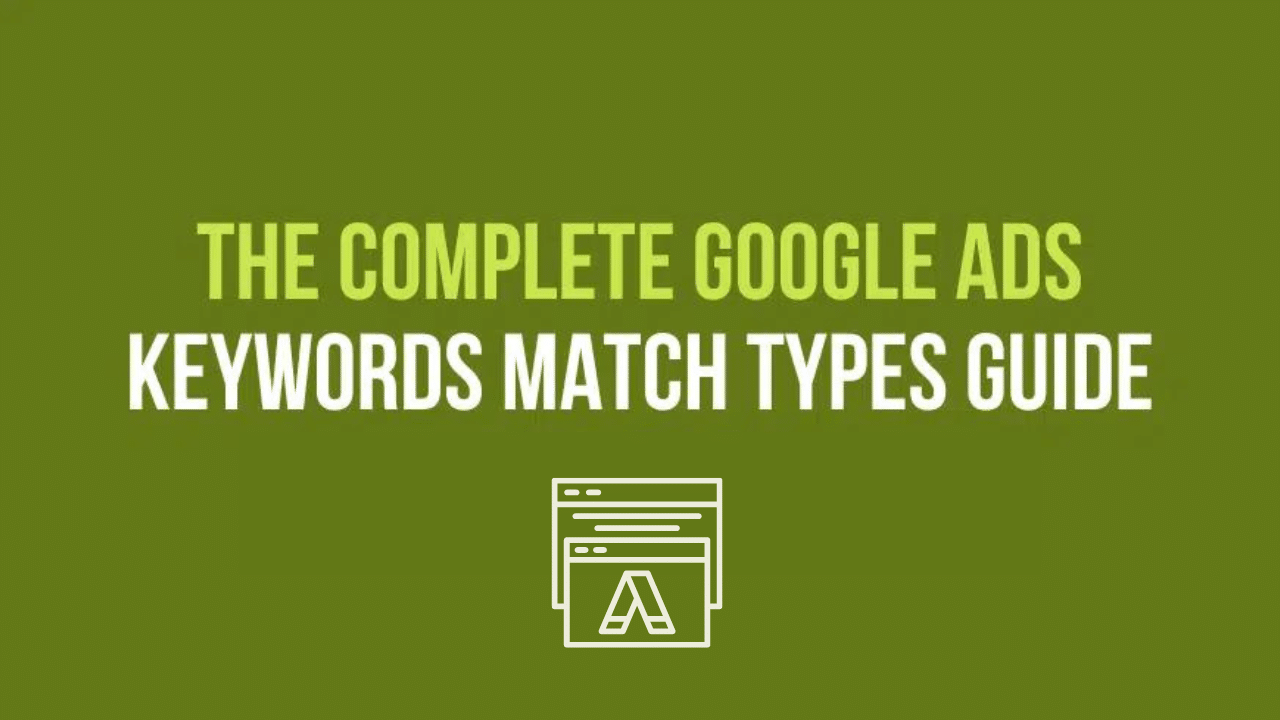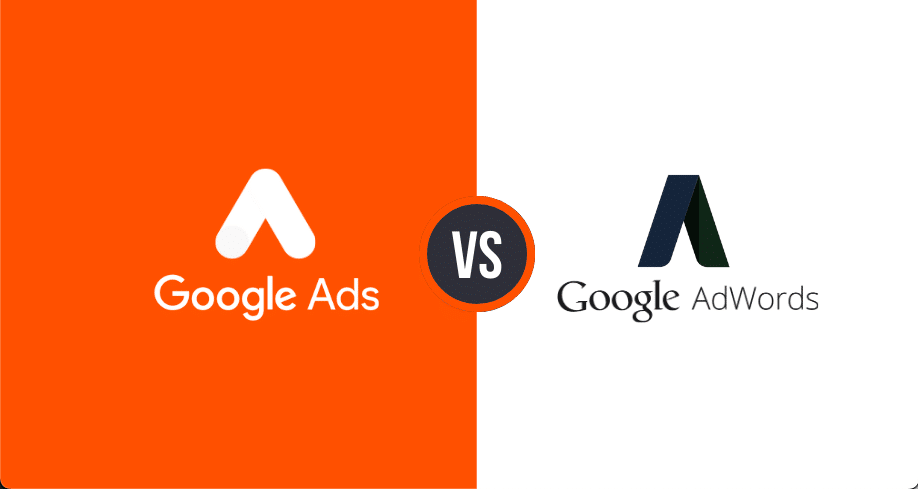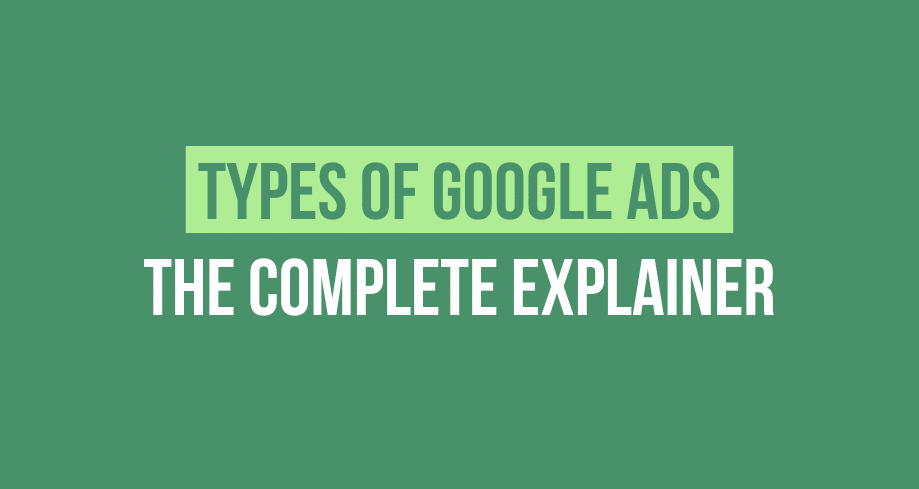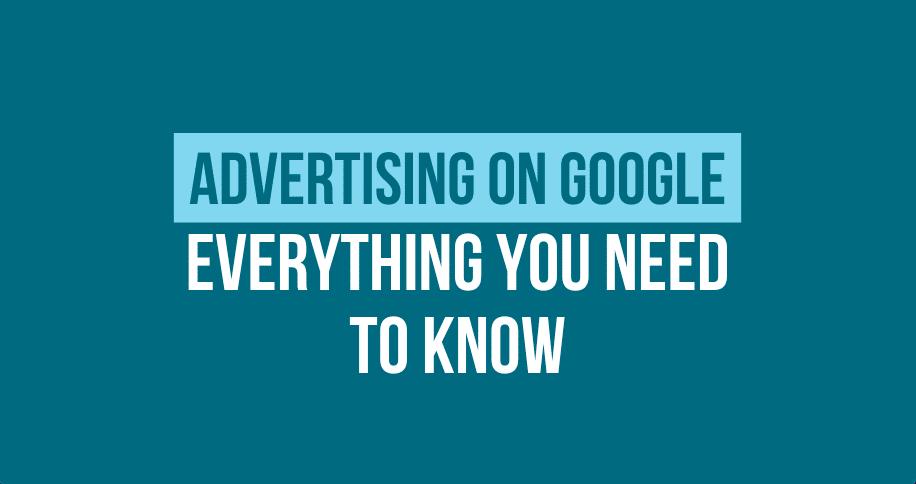If you’re aiming to get the maximum value from your Google Ads budget, it is essential that you have an in-depth grasp of all the different keyword match types.
PPC marketers often fail to comprehend the great impact of keyword match types on their success, as they focus too much effort on deciding which keywords to target with Google Ads. To prevail with Search Ads, having accurate and pertinent target keywords is an initial step that cannot be overlooked.
Unfortunately, one misstep in selecting the wrong keyword types can prove to be an extremely costly error. As a result, businesses may conclude that Google Ads doesn’t work – even though they have precisely targeted their keywords!
To maximize the success of your Google Ads campaigns, it is essential to understand each keyword match type and how you can apply them effectively. Let’s explore these different options so that you can make smart decisions for your campaign.
Let us begin.
What are Google Ads Match Types?
Are you aware of how PPC keywords can help your ads be seen by the right audience? With Google Ads match types, you can easily customize these settings to make sure that user searches have an ideal correlation with the keywords in your campaign.
By setting your ads at the keyword level, you ensure that only those search terms that meet your specified match types will be displayed. In this way, you can avoid having irrelevant ads appear for unrelated searches.
Just consider two different advertisers – one of which is a brand in search of people who are searching for only very specific products, such as ‘up-cycled gents swimwear.’
The advertiser wants to showcase a selection of the same goods – such as ‘men’s swimwear’.
While one brand is specifically aiming to produce a particular type of swimwear, the other can cater to any men’s swimwear merchandise.
Exploring how match types can assist two distinct brands to reach their intended audience on the SERP with diverse ads, let’s take a deep dive into this topic.
Different Google Ads Match Types
Google Ads offers three advantageous keyword match types;
- Broad Match
- Phrase Match
- Exact Match
Let’s take a look at each of them.
Broad Match
By default, Google uses a broad match type for its keywords.
By employing a broad match type, you are creating an expansive web for your ads to become visible. This keyword match type will cause your ad to be displayed in the case of misspellings, singular, and plurals, synonyms, related searches or even relevant variations. While this wide reach can draw potential customers from all directions, it may also bring irrelevant clicks as well due to its vastness.
Google says:
Ads may show on searches that are related to your keyword, which can include searches that don’t contain the keyword terms.
Launching a new campaign is always risky since irrelevant searches may deplete your ad budget. To ensure that you’re only showing up for relevant search terms, there needs to be more optimization done in controlling which search terms your ads appear on.
The broad match keyword is uniquely set apart from other options by its ability to take into consideration an array of additional criteria:
- Recent search activities by a user
- Landing page content
- Other keywords in an ad group to match with keyword intent
For an all-encompassing approach to keyword matching, use the exact word or phrase as it is.
When to Use Broad Match
If you’re aiming to maximize your ad reach and website traffic, the broad match could be your optimal choice.
One potential drawback is that you may receive a number of searches that are unrelated to your campaign. We strongly advise against using a broad match type if you’re new to online campaigns or have limited resources for marketing.
With a broad match, you can expect a higher reach and more clicks; however, be prepared to watch your budget dwindle quickly.
Despite a tight negative keyword list, broad matches can be utilized to generate successful results.
Right now, Google is strongly advocating the use of broad match and smart bidding strategies to get maximum benefits from available signals. This combination can be a great way for businesses to take advantage of these signals and see real results.
Broad Match Modifier (BMM) is no more
Are you behind the times on PPC? If so, then you must be wondering: What became of the broad match modifier?
Uncover why creating BMM is no longer feasible.
With the retirement of Google’s BMM match type, phrase matching was adapted to encompass much of what broad modifier covered.
At this time, broad match keywords are not available for adding to your account. However, you can use the + sign before each keyword in order to recognize any existing broad match modified (BMM) keywords that were previously used.
Phrase Match
Since its 2021 update, phrase match has revolutionized the way search terms appear for ads. Before this alteration, the display of ads was exclusively limited to exact order definition by keyword. Now with this innovative feature, a wealth of possibilities is available!
Presently, not only are ads popping up for keywords placed in the appropriate order but also for searches with similar intent and meaning to that keyword.
With phrase match, your ads will be displayed for terms that are similar in meaning, edited forms (typos, singular/plural), and synonymous words.
The main difference between phrase match and broad match is that when a search query includes words in the middle of your keyword, your phrase-matched ads won’t show up.
Here’s what Google says about it:
Ads may show on searches that include the meaning of your keyword. The meaning of the keyword can be implied, and user searches can be a more specific form of the meaning. With phrase match, you can reach more searches than with exact match and fewer searches than with broad match, only showing your ads on the searches that include your product or service.
Use the keyword in quotes so that you can employ the phrase keyword match type,
Eg: “gents swimwear“
When to Use Phrase Match Keywords
To ensure your ads are only displayed with relevant search queries and reduce unnecessary clicks, consider using phrase match. Doing so will result in less spending for more conversions! The more precisely you can target the words that cause people to convert, the better chance you have of achieving success.
Exact Match
Through the exact keyword match type, your ads will emerge only in response to an identical search query. But keep in mind that ‘Exact’ isn’t precisely accurate anymore.
Not only does this attract the most appropriate viewers, but it also has a limited reach because searchers are likely to type in an exact search term. Thus, you will get fewer clicks as compared to broader keyword searches.
Here’s how Google explains it:
Ads may show on searches that have the same meaning or same intent as the keyword. Of the 3 keyword matching options, exact match gives you the most control over who views your ad but reaches fewer searches than both phrase and broad match.
You can use the exact keyword match type by typing the keyword in square brackets.
Eg: [gents swimwear]
When to Use Exact Match Keywords
When you need to display your ads for specific keywords, an exact match is the perfect solution. Its impressive accuracy allows tight targeting and thus a greater chance of conversions.
By utilizing exact match types for keywords that have already proven to be successful, you can experience a higher rate of impressions and clicks – resulting in more conversions. However, if your campaigns begin with all unproven exact keywords, then it is likely that the results will not deliver impressions or clicks; thus leading to minimal conversion rates.
What if the keyword match type differs?
By now, it’s clear that Google carefully evaluates the match type you select. Generally speaking, broad matches have the highest potential reach and are more lenient when it comes to finding your desired keyword.
The precise match type has a minimal reach but provides the most pertinent and relevant results when targeting your preferred keyword.
Phrase match provides a middle ground between the above keyword match types.
Exact Match or Phrase Match?
Deciding between exact and phrase match types can be a complex decision with many potential outcomes. Each option has its strengths and weaknesses, so you’ll have to decide which one is more suitable for your needs.
By utilizing exact match, you can acquire extremely targeted searches; however, phrase match has the potential to amplify your reach significantly. This would lead to far more clicks and a greater chance of conversions!
Instead of relying on a single match type for your ads, why not use all the different types together? Although this may require some adjustments to your account settings, it will provide better balance and performance. By combining multiple ad match types in combination with careful optimization you can get more out of every click.
By balancing optimal reach and a focused target, you can allocate more of your budget to drive conversions.
Negative Keyword Match Types
In addition to the ‘positive’ keyword match types you can use in your Search and Display campaigns, Google also offers powerful ‘negative’ keyword match types.
As their name implies, Negative Keywords offset the desired effect of Positive Keywords when targeting audiences.
In this instance, they shield your promotions from being visible for certain search words users are inquiring about.
Here’s what you need to know about the 3 negative keyword match types in your ad account:
Negative Broad Match
This type of negative keyword match is the most stringent one. After you insert it into an ad group or campaign, your ads will not be displayed for any queries that contain all the negative keywords specified by you in any order.
By default, the broad negative keyword match type is always activated – so be conscious to switch it off when adding new negative keywords.
Here’s how Google explains them:
This type is the default for your negative keywords. For negative broad match keywords, your ad won’t show if the search contains all your negative keyword terms, even if the terms are in a different order. Your ad may still show if the search contains only some of your keyword terms.
Eg: Negative broad match keyword: running beach sandals.
To create a negative broad match, you simply need to add the keyword as is.
Negative Phrase Match
If you utilize a negative phrase match, your advertisement will not be visible for any search queries containing the precise keyword term in that exact same order.
Even if the search term features extra words, your ads will still be displayed — provided that the keywords aren’t in the same order as a negative keyword.
Ads will appear for search phrases that include characters, plurals/singulars, variations, and words related to the query.
We will let Google explain this in their own words:
For negative phrase match keywords, your ad won’t show if the search contains the exact keyword terms in the same order. The search may include additional words, but the ad won’t show as long as all the keyword terms are included in the search in the same order. The search may also include additional characters to a word and the ad will show even when the rest of the keyword terms are included in the search in the same order.
Eg: Negative phrase match keyword: “running beach sandals”
To use phrase negative match keywords, use quotes with your search term as above.
Negative Exact Match
For a negative exact match, your ad will no longer be displayed in searches that exactly match the keyword phrase provided. Furthermore, this includes any additional words that were not specified as keywords.
Google says that:
For negative exact match keywords, your ad won’t show if the search contains the exact keyword terms, in the same order, without extra words. Your ad may still show if the search contains the keyword terms with additional words.
Eg: Negative exact match keyword: [running beach sandals]
To use exact negative match keywords, use square brackets with your search terms as illustrated above.
Why Are Google Ads Match Types Important?
Evidently, you can’t afford to take chances with PPC match types.
Furthermore, you don’t want to risk making a wrong choice when selecting the advertisement that will work for your business.
Utilizing Google Ads keyword match types can help you target the searches that are specific to your products or campaigns, so you don’t waste any of your advertising budget. For example, you can run a Google Ads campaign for dentits.
If you only sell one specific item of the main product, say desert hiking sandals, you can’t afford to be broad with the main product keyword – hiking sandals.
By utilizing broad match types in this situation, you run the risk of wasting a significant portion of your budget on traffic that is less likely to result in sales. This would have an adverse impact on both your ROAS and ROI; diminishing their efficacy significantly.
Utilizing the correct keyword match type will also allow you to target your searchers at the most appropriate stage of their journey.
If you identify which keywords in your ads account have been converting the most, prioritize them in their ad groups and increase your budget to maximize reach among those users searching for these successful search terms.
Exploiting multiple match types for your campaigns ensures that your ads show up in searches of all kinds, be specific or generalized.
Frequently Asked Questions
- What is a keyword match type and how does it affect my ad targeting?
Keyword match types determine how closely the keyword you choose needs to match the search terms used by potential customers for your ad to be shown. There are four main keyword match types:
- Broad match: Your ad will be shown for any search that includes your keyword, or close variations of it. This is the most flexible match type, but also the least specific.
- Phrase match: Your ad will be shown for any search that includes your exact keyword phrase, or close variations of it with additional words before or after the phrase.
- Exact match: Your ad will only be shown for searches that exactly match your keyword phrase or close variations of it with additional words before or after the phrase.
- Negative match: Your ad will not be shown for searches that include the negative keyword you specify. This can be used to exclude specific search terms from triggering your ad.
- How do I choose the right keyword match type for my campaign?
The best match type for your campaign will depend on your advertising goals and the specific search terms you want to target. A broad match is a good choice if you want to reach a wide audience and don’t have specific search terms in mind. Phrase and exact match are better for targeting specific search terms and reaching a more qualified audience. A negative match is useful for excluding unwanted search terms.
- Can I use multiple match types for the same keyword in my campaign?
Yes, you can use multiple match types for the same keyword in your campaign. For example, you might use a broad match for a general keyword and an exact match for a specific product name. This can help you reach a wider audience while still targeting specific search terms.
- How do I see which search terms triggered my ad with each keyword match type?
You can see which search terms triggered your ad for each keyword match type by looking at the “Search terms” report in your AdWords account. This report shows you all the search terms that caused your ad to be shown, along with the corresponding keyword match type. You can use this information to fine-tune your keyword targeting and improve the performance of your campaign.
Conclusion
Making the decision on which match type to utilize for your keyword selection can be daunting. Likewise, relying exclusively on one match type may not deliver optimum success in your campaigns.
To maximize the benefits of your campaigns, consider utilizing different types of match criteria in your ad groups. Even though this initiative may take some effort to initiate, you can rest assured that the results are well worth it!
If you want to be successful with match types, you must first establish a reliable structure. If you are haphazard in the way that your match types interact, it is possible for multiple ads from various campaigns and ad groups to end up competing against each other – leading to wasted resources and potential losses.
Which type of Google Adwords keyword match types has delivered results for you? Let us know in the comments section below!




